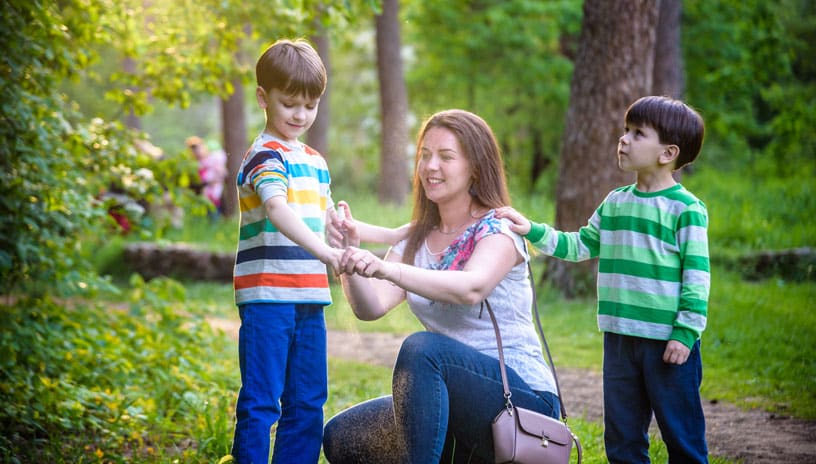Mosquitoes: Health Concerns and Prevention Tips

Enjoy the outdoors and reduce your risk of mosquito-related health concerns.
More Than an Annoyance
Spring marks the return of warmer weather and the chance to spend more time outdoors. It also marks the return of mosquitoes and the health concerns that can affect individuals and animals.
The presence of mosquitoes is more than an annoyance. Mosquitoes are known carriers of several diseases. Their bites can threaten the public’s health, especially during peak mosquito season.
Why Mosquitoes Matter to Public Health
Mosquitoes are “vectors.” This means they can carry and transmit diseases from one person or animal to another. In the United States, the most common mosquito-borne illnesses include:
- West Nile Virus (WNV): The most common mosquito-transmitted disease in the continental U.S. Most people infected with WNV experience no symptoms. However, some may experience fever, headaches, body aches, or neurological issues.
- Zika Virus: This virus is a concern for pregnant women. Zika can cause premature birth, birth defects, and neurological complications in newborns.
- Dengue: Although it’s less common in the U.S., 24 cases were reported in Illinois during 2024. This disease can cause fever, rash, and joint pain.
Even in areas where these illnesses are rare, mosquito bites can result in allergic reactions, skin irritation, and secondary infections from scratching.
When Are Mosquitoes Most Active?
Mosquito activity increases during the warmer months, especially after periods of rain. Peak times tend to be:
- Dawn and dusk, when mosquitoes are most likely to be out looking for a blood meal.
- After heavy rains, which create standing water, which provides an ideal breeding site for mosquitoes.
Simple Prevention Tips to Stay Safe
Protecting yourself and your loved ones from mosquito bites is possible with a few simple strategies:
#1. Eliminate Standing Water
Mosquitoes lay eggs in standing water; even small amounts can become breeding grounds. Check around your home and property, and regularly empty:
- Buckets, birdbaths, and flowerpot trays
- Clogged gutters
- Unused kiddie pools and old tires
- Pet bowls and water troughs
#2. Use Mosquito Repellent
Protect exposed skin by using an EPA-registered repellent containing DEET or picaridin. For those seeking a “natural” repellent, you can use oil of lemon eucalyptus, but not on children under 3 years old. Always follow label instructions and reapply as directed, especially after swimming or sweating.
#3. Wear Protective Clothing
When outdoors during mosquito-prone times, wear:
- Long sleeves and pants
- Light-colored clothing (mosquitoes are more attracted to dark colors)
- Hats or head nets when in heavily infested areas
#4. Secure Your Home
- Ensure window and door screens are without holes.
- Keep doors closed when not in use.
- Use air conditioning when possible to keep mosquitoes outside.
#5. Consider Mosquito Control Products
For added protection on decks, patios, and around your property:
- Use outdoor fans (mosquitoes are weak fliers).
- Consider larvicides for standing water that cannot be drained.
- Use citronella candles or mosquito traps—but don’t rely on them alone.
Special Care for Children and Pregnant Women
Children and pregnant women should be especially careful, as they may be more vulnerable to mosquito-borne illnesses. When using repellent on children:
- Avoid applying to their hands, or near their eyes and mouth.
- Spray on adult hands first, then apply to the child.
- Do not use oil of lemon eucalyptus on children under 3 years old.
Mosquito Control: A Shared Responsibility
Controlling mosquitoes is a community effort. When residents eliminate standing water and report persistent mosquito problems, it helps protect the entire community.
If you notice areas with standing water or ongoing mosquito issues, contact your local government or public health authorities. Such areas may include ornamental ponds, animal troughs, some public spillways, or flood-prone locations.
The Moultrie County Health Department (MCHD) can assist county residents in addressing standing water issues and applying all-natural larvicide briquets. For more information about mosquito control or to request support, contact the MCHD. Together, we can look forward to a safer, more enjoyable warm-weather season for all.

